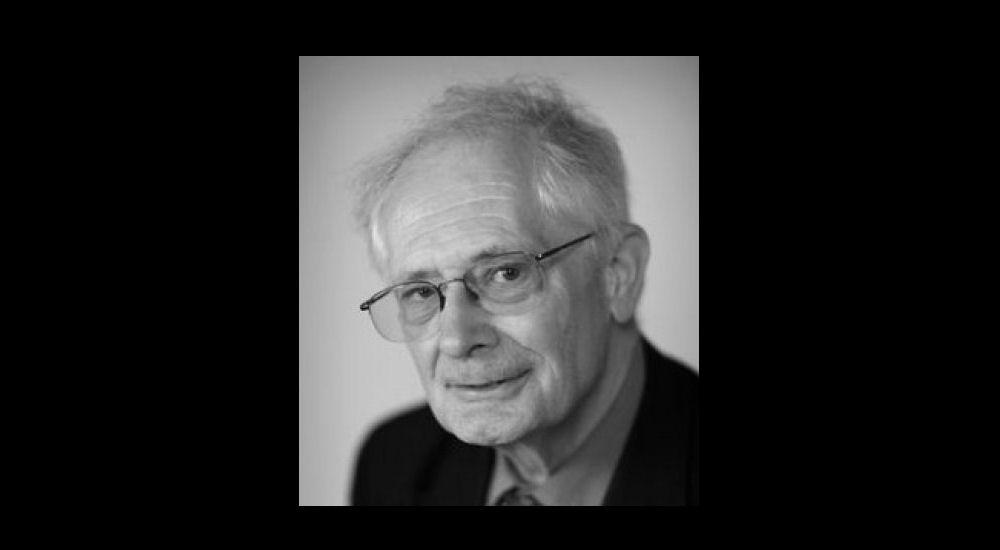Derek Beales 1931 - 2023

Derek Edward Dawson Beales, FBA, (12 June 1931 – 10 July 2023)
It is with profound sadness that the Faculty of History announces the death of Derek Beales FBA, eminent historian of modern Europe. He passed away peacefully on Monday 10th July, just less than one month after his ninety-second birthday. Derek came to dominate the field of the history of the Habsburg Empire in the eighteenth century, but his expertise was much broader, also encompassing British and Italian history. His doctoral thesis, supervised by Denis Mack Smith, formed the bulk of his first monograph, England and Italy, 1859-60 (1961), which has remained a classic and an indispensable authority in the field. His second book, From Castlereagh to Gladstone, 1815-1885 (1969) consolidated his reputation as a historian of British politics in the nineteenth century. It was widely used for generations, and still stands out for its clarity, readability and breadth.
As Tim Blanning and David Cannadine wrote in their introduction to his Festschrift History and Biography (1996), Derek ‘[wrote] national history, international history, political history, constitutional history, ecclesiastical history and cultural history’, and he taught in each of these fields. When Derek decided to embark on the study of the Habsburg empire during the life of Joseph II (1741-1790), he was singularly well suited for this task, not least because, like his subject, he had a command of disciplines as diverse as music, philosophy, law, and public administration in eighteenth-century Europe. The biography – which appeared in two volumes, published, respectively, in 1987 and 2009 – represented a monumental achievement and set new standards in the field. As Derek explained in his inaugural lecture as Professor of Modern History (1980), though ‘few individuals can be known to the historian in detail,’ historical biography can provide scholars with a unique window into the world of their subjects, illuminating their times as well as their achievements and personality. This is certainly what Derek did for Joseph. Based on extensive research in the archives of Berlin, Florence, London, Moscow, Turin, the Vatican, Venice, and Vienna, each of his two volumes was received with great acclaim by the scholarly community. They combined an awe-inspiring command of the evidence in many different languages, with a clarity of analysis and presentation which still make his work a pleasure to read. Joseph’s keen interest in ecclesiastical reform provided Derek with the opportunity to publish a further important monograph, Prosperity and Plunder: European Catholic Monasteries in the Age of Revolution, 1650–1815 (2003). This study recovers the historical significance of a vast array of institutions which dominated education and supported music and the arts across much of continental Europe. Again, only a polyglot like Derek, with his wide interests and expertise could have written such a book, or even conceived it. His last work was an edition of a manuscript produced by a high-ranking diplomat for his Neapolitan princess, the Essai Sur La Monarchie Autrichienne En Son état Actuel En 1790. Derek, who had discovered two versions of the unpublished manuscript in Vienna and in the Cambridge University Library, edited the essay together with Renato Pasta in 2018.
Born in Felixstowe (Suffolk), Derek grew up in Bishop’s Stortford, where he attended the Northgate School, and Bishop Stortford College. He came up to Sidney Sussex after completing his National Service (in the Royal Artillery), and took his BA in 1953 and his PhD in 1957. Besides his supervisor, his mentors included David Thomson and Otto Smail (both at Sidney), George Kitson Clark and G.M.Trevelyan, about whom he used to tell unforgettable anecdotes. Trevelyan’s influence was also behind the constant interest which Derek retained for both the Risorgimento and its British perceptions, best exemplified by his essay on Garibaldi’s triumphal visit to London in 1864. His Risorgimento and the Unification of Italy (first published in 1971 and published in a revised and expanded edition, together with the present writer, in 2002) was translated into Italian and has been widely used in both languages.
His graduate students benefitted enormously from his critical and perceptive eye, his unfailing generosity and his faithful support over the years. As a supervisor he was unsurpassed. I fondly remember an occasion when he tore apart my arguments, then helped me to put them together again, showing that I was right in my conclusions, but for the wrong reasons. Each time we met, it was a learning experience and an intellectual feast.
Derek was endowed with a special gift for detailed analysis, which he deployed both in the archives and in the scrutiny of University papers. He is greatly missed in College, where he was a Fellow for sixty-eight years. He remained very active to the end, taking upon himself important administrative duties, which included advising the committee which revised the College Statutes and Ordinances in 2018.
Derek was much loved and appreciated by his family who enjoyed many activities with him - bridge, playing music, exploring historic houses and churches and travelling. Derek was a gifted musician, and he kept a forte piano in his rooms in Hall Court. He passed on his musical gifts to both his children and his grandchildren. A College symposium on his work will be held in the Michaelmas Term.
Eugenio Biagini
----------------------------------
A service celebrating Derek's life will be held at Little St Mary's Church, Cambridge at 2:00pm on Wednesday 30th August 2023. No flowers please, and black attire is not necessary. Donations for the Alzheimer's Society via Derek's In Memory page at www.peasgoodandskeates.co.uk or sent c/o Peasgoood & Skeates 164 Histon Road, Cambridge CB4 3JP 01223 791060
